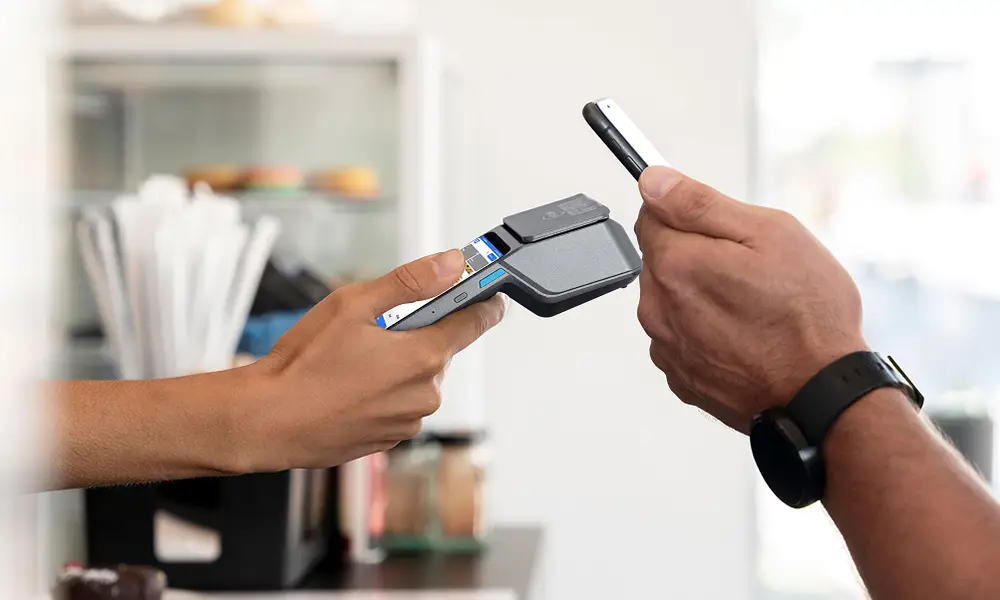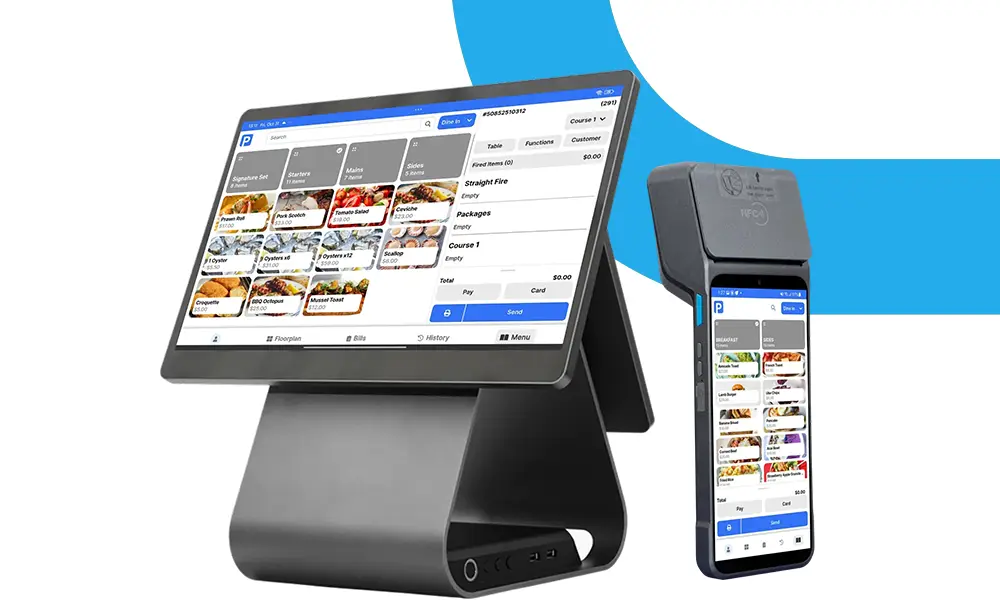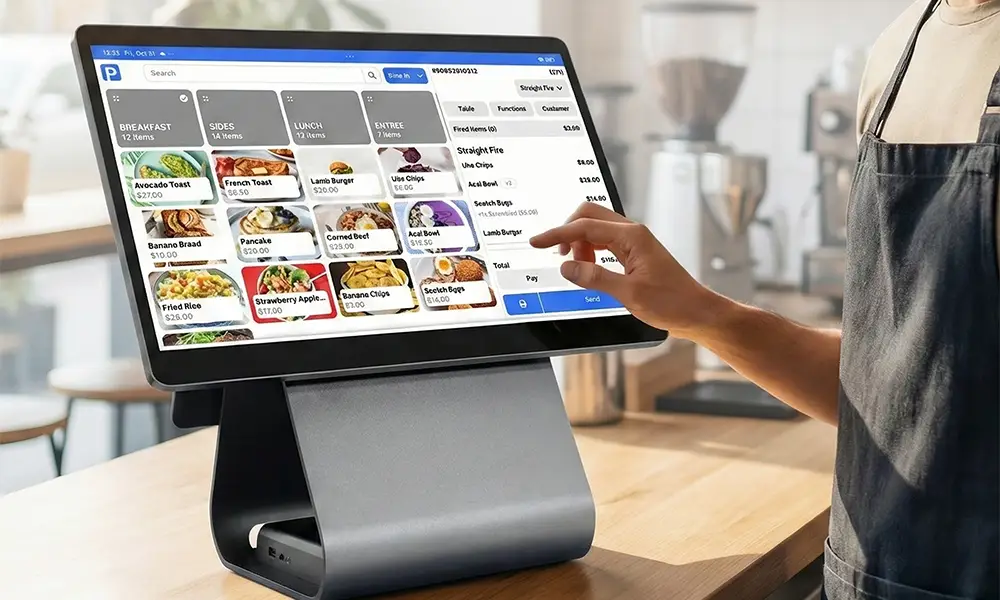Ever feel like managing a bike shop is a bit like riding uphill? Between juggling sales, tracking repairs, managing inventory, and keeping up with customer service, it can feel like there’s always something more to do.
Wouldn’t it be nice to have a tool that could help make all these tasks easier, so you could focus more on your customers and their bikes? That’s where a Bike Shop POS System comes in.
Designed to meet the unique needs of bike retailers, a POS system simplifies every aspect of running a shop—from inventory and sales to repair services and customer loyalty.
In this article, we’ll explore how a Bike Shop POS system can simplify your sales and service operations, allowing you to keep up with demand and give customers the experience they deserve.
Why a POS System Is Essential for Bike Shops
Bike shops have specific needs that go beyond traditional retail. From tracking dozens of bike models and parts to handling service requests, a bike shop POS system can help tackle the unique challenges you face:
- Diverse Inventory: Bikes, parts, and accessories come in all shapes and sizes, each needing tracking.
- High customer expectations: Customers need quick service, especially for repairs and custom orders.
- Service management: With repairs and tune-ups, bike shops need an easy way to manage service tickets and track progress.
- Seasonal demand: Busy seasons mean bike shops need to stay efficient and organised to keep up with customers.
A POS system tailored for bike shops is more than just a register—it’s a tool to help streamline and simplify every aspect of the business.
Key Features of a Bike Shop POS System
1. Comprehensive Inventory Management
Bike shops often stock a wide range of products, from bikes and helmets to replacement parts and accessories. Managing such a diverse inventory can be a headache, but a Bike Shop POS System makes it easier:
- Real-time stock updates: Every sale or service updates your inventory automatically, so you’re always in the know.
- Low-stock alerts: Get notified when popular items are running low, ensuring you’re always prepared.
- Multi-location tracking: For shops with multiple locations, tracking inventory across stores or warehouses is seamless.
Whether you’re selling mountain bikes, road bikes, or electric scooters, a POS system helps keep your stock organised and accurate.
2. Streamlined Checkout Experience
Bike shop customers expect fast, hassle-free checkout, especially when purchasing high-value items or getting repairs done. A POS system for bike shops ensures that the checkout process is smooth and efficient:
- Barcode scanning: Quickly scan products for easy, error-free transactions.
- Flexible payment options: Accept cards, cash, mobile payments, and even split payments.
- Digital and printed receipts: Offer customers a choice, especially helpful for keeping track of warranty and service records.
A quick and simple checkout lets customers spend less time waiting and more time enjoying their new purchase or freshly serviced bike.
3. Service and Repair Tracking
Repair services are a key part of many bike shops, and keeping track of service orders is essential. A Bike Shop POS System provides a simple way to manage repairs and service requests:
- Service tickets: Create service tickets for each repair job, detailing customer requests and repair status.
- Parts tracking: Link parts to specific repairs, so you always know what’s needed for each job.
- Notifications: Notify customers when their bike is ready for pickup, saving them time and hassle.
Repair tracking is a big plus for bike shops, helping to prevent mix-ups and keep customers happy.
4. Sales Reporting and Analytics
Understanding what’s selling and what’s not is essential for a bike shop’s success. A Bike Shop POS System provides valuable sales data to help you make informed business decisions:
- Top-selling products: Identify which bikes, accessories, or repair services are most popular.
- Seasonal trends: Track sales trends throughout the year, allowing you to plan for peak seasons.
- Customisable reports: Get daily, weekly, or monthly sales insights to stay on top of your business performance.
With data on hand, you can make decisions based on hard facts, from stocking the right products to planning promotions.
5. Customer Relationship Management (CRM)
Repeat customers are a huge asset in the bike industry, and building loyalty is key. A POS system with CRM capabilities helps you provide personalised service:
- Customer profiles: Store information about each customer’s bike, purchase history, and service records.
- Loyalty programs: Offer rewards for frequent customers, from discounts on accessories to special offers on tune-ups.
- Service reminders: Set up reminders for regular maintenance, encouraging customers to return for tune-ups and repairs.
A strong CRM means better customer relationships, leading to more referrals and repeat business.
6. Employee Management Tools
Managing your team efficiently is essential for any successful bike shop. A Bike Shop POS System comes with employee management tools that streamline team performance:
- Shift tracking: Log hours directly through the POS for easier payroll.
- Sales tracking by employee: See who’s performing well, so you can recognise top sellers.
- Permissions control: Set permissions based on roles to ensure data security and control access.
Employee management tools help improve accountability and make scheduling a breeze, ensuring that your staff can focus on customers.
Benefits of a Bike Shop POS System
Using a Bike Shop POS system brings plenty of advantages to help you stay organised and profitable.
Here’s what you’ll get:
- Time Savings: Faster checkouts, automated inventory updates, and streamlined service management free up time for staff to focus on customers.
- Improved Customer Satisfaction: Service reminders, quick transactions, and loyalty programs build a strong customer base.
- Data-Driven Decisions: Make smart business decisions with insights into sales trends and customer preferences.
- Increased Efficiency: All-in-one management for sales, service, and staff lets you keep everything running smoothly, even during peak seasons.
Choosing the Right Bike Shop POS System
When it comes to selecting a Bike Shop POS system, look for a system with these key features:
- Ease of Use: A user-friendly system makes it simple for your team to learn and use.
- Scalability: As your shop grows, choose a POS that can handle more inventory, employees, and even multiple locations.
- Integration: Look for a POS that integrates with other tools, like accounting software, eCommerce platforms, and customer communication tools.
- Reliable Support: Choose a provider with responsive support and helpful resources to ensure you get the most out of your POS..
Finishing Touches
Running a bike shop should feel like coasting down a hill, not climbing up a steep one. A Bike Shop POS system takes the hassle out of managing inventory, tracking sales, and handling repairs. From automated stock updates to loyalty programs and repair tracking, it’s a tool that makes life easier for you and your team while improving the customer experience.
Ready to take your bike shop to the next level? Book a demo with Payflo to discover how a Bike Shop POS System can help simplify your operations and boost your sales today!
FAQs
1. What is the best POS system for bike shops?
Lightspeed and Vend are popular choices among bike shops, offering features that help with inventory management, service tracking, and customer loyalty programs.
2. Can a Bike Shop POS System track repair orders?
Yes, many POS systems allow bike shops to create service tickets, track repairs, and notify customers when work is complete.
3. Is a Bike Shop POS system expensive?
Pricing varies, but many providers offer monthly subscription plans with options to fit small to large bike shops.
4. Do POS systems for bike shops support loyalty programs?
Absolutely. Many POS systems come with built-in loyalty programs or integrations that let you reward loyal customers.
5. Can I use a POS system for both in-store and online sales?
Yes, many Bike Shop POS systems sync with online stores, allowing you to manage both sales channels from one system.


%201.svg)
%201.svg)





.png)
.png)
